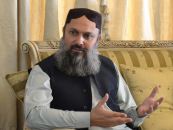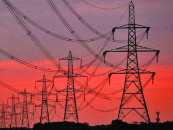SOEs earn Rs102b in profits
Power companies, PIA remain loss leaders; finance ministry report questions privatisation's efficacy

In a first, Pakistan's public sector companies earned Rs102 billion in net profit during the first half of the last fiscal year, but the financial bleeding of power distribution companies and Pakistan International Airlines (PIA) persisted.
The Cabinet Committee on State-Owned Enterprises (CCoSOEs) on Wednesday approved the half-yearly report for the July-December 2023 period, showing a net profit for the public sector. Most results pertained to the caretaker government's tenure during this period.
Privatisation appeared ineffective in resolving fiscal issues, as evidenced by Pakistan Telecommunication Limited (PTCL)privatised nearly two decades agowhich posted a Rs7.8 billion loss during the same period, according to the finance ministry report.
The report revealed a net profit of Rs102 billion for all SOEs after adjusting for total losses incurred during the first half of the last fiscal year, according to the report approved by the committee. Finance Minister Muhammad Aurangzeb chaired the committee. Aggregate profit stood at Rs510 billion against Rs407 billion in losses. Seven companies under the Pakistan Sovereign Wealth Fund contributed Rs249 billion to the profit.
The International Monetary Fund (IMF) has already raised concerns over placing these companies under the Sovereign Wealth Fund, objecting to the transfer of their profits to the fund.
Some companies, however, showed accounting profits, but better management could have yielded higher returns. The government is legally obligated to publish the biannual SOE performance report following approval by the CCoSOEs and the federal cabinet.
Total SOE revenues increased by over 15%, reaching Rs7 trillion in the first half of the last fiscal year. Net profit during this period stood at Rs101.5 billion, compared to Rs101 billion in losses during the same period of the previous year. Aggregate losses decreased by 10%, from Rs453 billion to Rs407 billion, as per the report. Dividend payments, however, fell by 72%, with only Rs9 billion disbursed compared to Rs32 billion in the previous year. Civilian state-owned companies employ about 350,000 individuals.
The National Highway Authority recorded the highest losses at Rs151.4 billion, followed by Quetta Electricity Supply Company with Rs56.3 billion in losses and PIA at Rs51.8 billion. Other loss-making entities included Peshawar Electricity Supply Company (Rs39 billion), Pakistan Railways (Rs23.6 billion), Sukkur Electricity Company (Rs21 billion), the closed Pakistan Steel Mills (Rs14.4 billion), Islamabad Electricity Supply Company (Rs12.2 billion), Central Power Generation Company (Rs8.4 billion), Pakistan Telecommunication Company (Rs7.8 billion) and Pakistan Post Office (Rs5.5 billion)
The Prime Minister has decided to shut down the Utility Stores Corporation, which incurred Rs2.2 billion in losses and ranked 15th among the loss-making entities. Out of the top 15 loss-making entities, seven are in the power sector.
The government provided Rs437 billion in fiscal support to SOEs during this period. Despite this, the net cash flow of SOEs was positive at Rs122 billion, with the government receiving Rs559 billion in dividends, taxes, and non-tax revenues.
Top profit-making SOEs
The Oil and Gas Development Company led profits with Rs123.3 billion – a gold asset parked in the sovereign wealth fund. Pakistan Petroleum Limited followed with Rs68.8 billion and National Power Parks Management Company with Rs36.3 billion. Other profitable entities included Pak-Arab Refinery Company (Rs35 billion), Government Holdings Company Limited (Rs32.5 billion), Lahore Electricity Supply Company (Rs28.4 billion), National Bank of Pakistan (Rs26.7 billion), Multan Electricity Power Company (Rs22.3 billion), Port Qasim Authority (Rs18.5 billion), and the Water and Power Development Authority (Rs16.8 billion).
The committee was informed that the profits of three power distribution companies stemmed from returns on government debt investments rather than their core electricity supply operations. Many companies' profitability was attributed to accounting gains, with low cash flows and high-risk receivables on their balance sheets. The committee's intervention was sought to appoint independent board directors and realistic business plans to enhance SOE efficiency.
The CCoSOEs urged expediting the categorisation of SOEs into strategic and non-strategic entities to determine their privatisation potential. However, most SOEs have been classified as essential and strategic, limiting privatisation options except in the power sector.
The committee approved several board appointments, including Jahanzeb Baig and Muhammad Kamran Khan for the Overseas Pakistan Foundation, and Rubina Bashir and Muzaffarud Din for Livestock and Dairy Development. It also reconstituted the board of the Printing Corporation of Pakistan, appointing Wahab Shahzad, Ayesha Waqar, Naeem Akhtar Sheikh, Hajra Omar, and Barrister Ehsaan Qazi as independent directors. Additionally, the Ministry of Railways' recommendations for reconstituting boards for Pakistan Railways' SOEs were approved. These included Pakistan Railways Advisory and Consultancy Services, Pakistan Railways Freight Transportation Company, Railways Estate Development and Marketing Company, and Railways Construction Pakistan Limited.
The Ministry of National Food Security and Research also received approval for independent directors on the Fisheries Development Board and the Pakistan Cotton Standards Institute.



















COMMENTS
Comments are moderated and generally will be posted if they are on-topic and not abusive.
For more information, please see our Comments FAQ